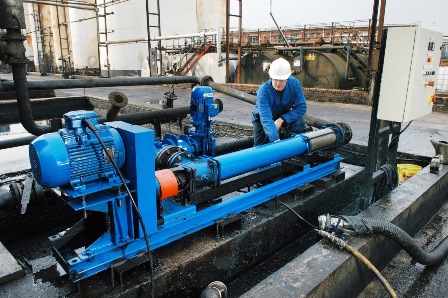
CSG Lanstar, the UK's leading specialist in the collection and treatment of bulk and packaged liquid waste streams, has installed a high performance TR Muncher from NOV® Mono® to improve process efficiency at its site in Manchester.
The company, which is part of the Cleansing Service Group, was experiencing operational problems with its existing equipment, which could not handle the mixed viscous waste oils that were being transferred as part of the process. To provide a solution, Mono supplied a CT201 solids grinder, the latest addition to the TR Muncher® range.
The waste oils are offloaded from delivery tankers and due to the presence of heavy solids within the waste, were causing pump blockages. The CT201 Muncher has been installed upstream of the existing pump to finely macerate all solids within the flow, before the waste oil is transferred into the recovery system for cleaning.
Treatment & Disposal Director at CSG Lanstar, Neil Richards, commented: "Our previous equipment just wasn't able to cope; however, the Muncher from Mono easily grinds its way through the high particle size of the oil sludge we transfer, making it pumpable and in turn, significantly reducing downtime at the site.
"We currently have around 20 Mono pumps onsite which we are very happy with and our latest addition is no exception."
The competitively priced new TR Muncher® model from Mono has been specifically designed to meet on-site tanker discharge requirements and sludge/fat processing, by protecting downstream equipment from blockages, while allowing quick and easy inspection and maintenance.
The new model provides customers with reduced power consumption, a smaller carbon footprint and decreased maintenance costs, while still retaining the proven benefits of the TR Muncher® trash trap, inclined cutter stack and pull-back design.
Installation of the new TR Muncher® is simple, with in-line flanges or the option of tanker coupling connections. Quick release inspection covers allow in-situ replacement of the cutters and these can be specified to either 8.0mm, 5.5mm or 3.0mm thickness to match the optimum particle size for specific process requirements.